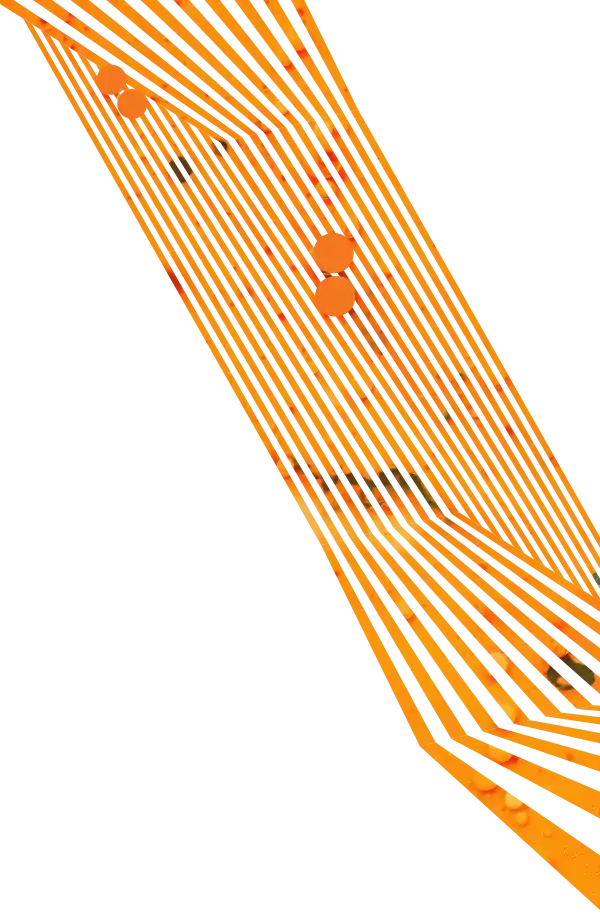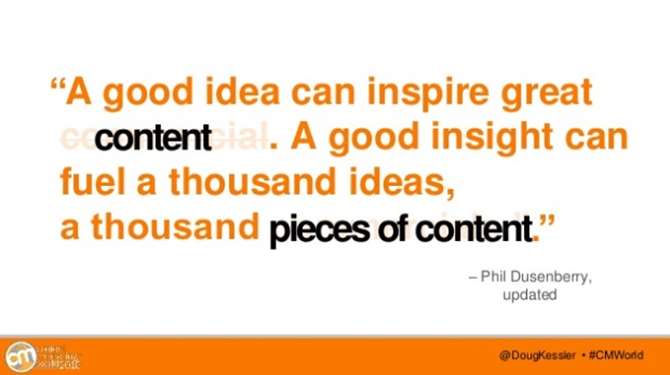You guys, how are there so many smart people?
It feels like just yesterday we were at Content Marketing World 2015 talking with experts about being honest (Doug Kessler, Insane Honesty), being authentic (Rajiv Chandrasekaran & Howard Shultz, Starbucks & Veterans), and being human (Kristina Halvorson). So how could we possibly top that?
With Legos.
And laughter.
And insight.
But most importantly (as the experts reminded us) with people, community, and quality content.
5 Tips from Content Marketing Experts
1. Put your customers on center stage, not your brand. Build a community around content. -Lars Silberbauer
Lars Silberbauer is the global senior director of social media & video at LEGO. He joined LEGO in 2011 when they didn't even have a Facebook page or YouTube channel.
Now LEGO's Facebook page has 11.6 million fans, and its LEGO YouTube channel gets more than 1 billion views a year!
Working closely with his talented global team (and partnering with Facebook) he emphasized empowering people to build relationships. Anyone can make plastic blocks, it's the community that connects customers and strengthens the brand.
"We have 20 times more content being generated by users than we do ourselves, this is what makes a ton of difference." - Lars Silberbauer
How LEGO Connects with the Community to Create Content
LEGO Ideas Website
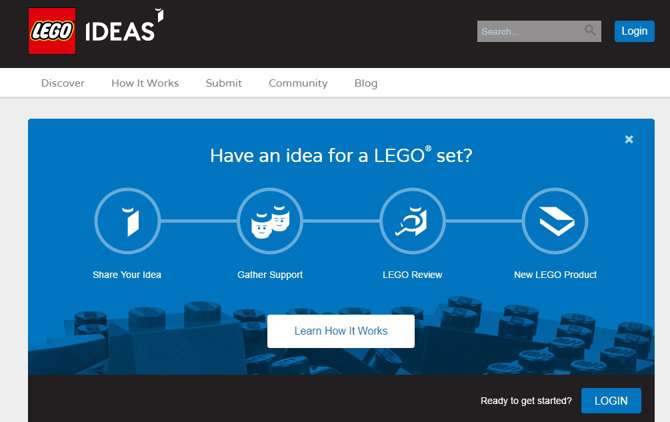
With the ideas "building together" and "pride of creation," Lego created an ideas website. You can create your own project idea and if you get 10,000 supporters LEGO will put your idea into the market.
George!
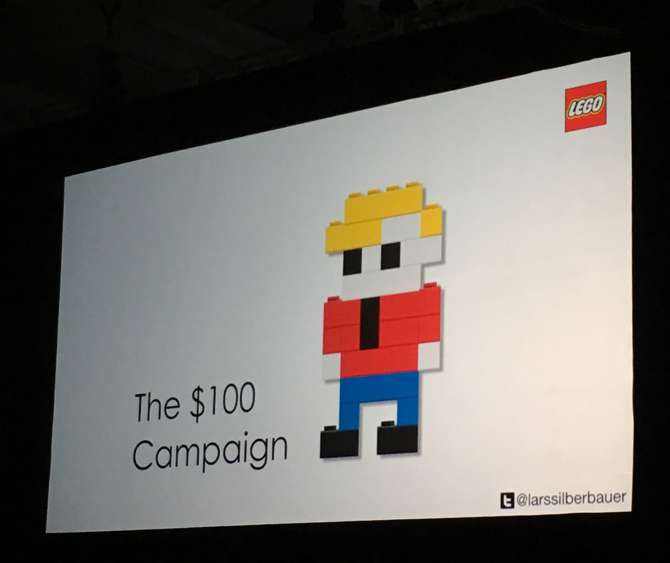
The "empty your pockets campaign," OK Lars didn't call it that specifically, but what a great idea. He wanted to see what kind of impact they could have with a smaller budget. For $100 they came up with "George."
George was a template anyone could create, and with the customer's help he'd travel the world. LEGO set the stage for customers to build their own content. And they got results immediately. George even has his own Facebook page.
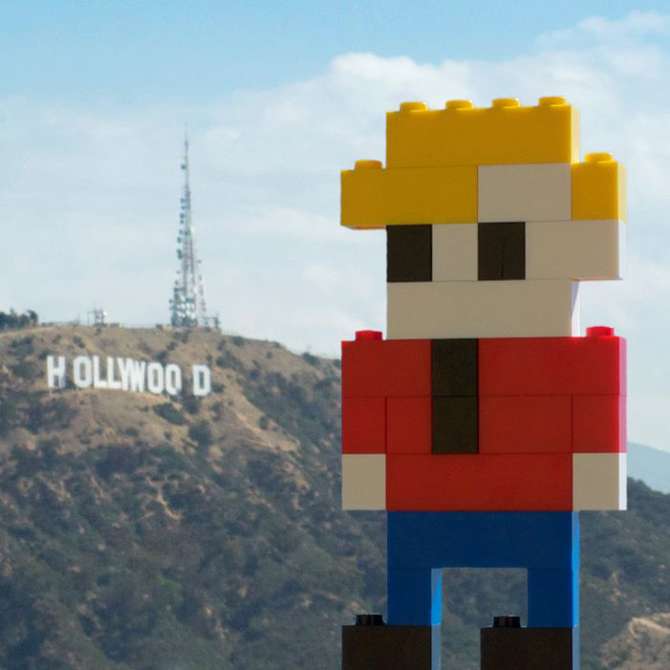
What's your kronkiwongi?
This unique campaign lets you peak into the child's inner world and imagination. LEGO teamed up with Facebook and sent bricks for parents to have their kids build a kronkiwongi.
"98 percent of us are creative geniuses at 3 years old, but by the time we are grownups, only 2 percent of us have retained that level of creativity.'" - Lars Silberbauer
The creativity of children and the pride of parents was a perfect combination for Facebook.
The Facebook campaign rose engagement 61 percent on LEGO's Facebook page and reached 80 percent of the moms LEGO targeted on Facebook (27 million people).
Check out LEGO's Kronkiwongi page and watch the video (it's adorable).
Want more details? There's a complete write up of the LEGO keynote you can check out.
Key Takeaway: If you're noticing a lack of engagement from your customers on social media, take a closer look at your online community. Are you giving them the chance to be in the spotlight?
2. An ally in creation is an ally in promotion. -Andy Crestodina
Andy Crestodina knows a lot about how to work with people and grow a business. He shared his personal story and strategy that took his company from around $900 annual revenue in 2002 to $5 million with 100% inbound leads in 2016.
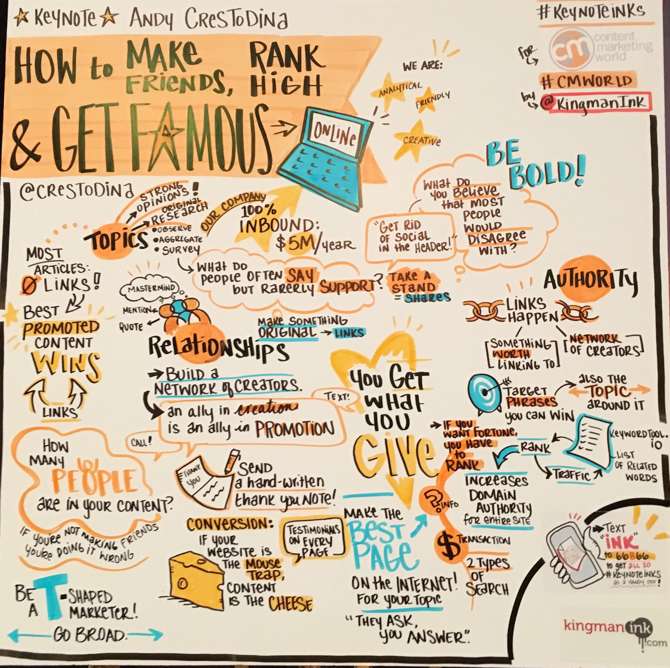
Spoiler alert: he didn't do it alone. He built relationships and created a community of people that supported him (and shared his content).
For Andy, there are two types of content:
- Strong opinion content (generates shares)
- Original research content (generates links)
Questions to help you generate ideas for these types of content:
- What do people say but rarely support in your industry? (Find the missing statistic)
- What do you believe that most people will disagree with?
- What questions in your industry are people afraid to answer?
Answer those questions, and you'll have content people will want to read. Andy and his team do a great job creating both types of high-quality content on the Orbit Media Blog.
But are other people doing this too? Who's creating all this content online? Turns out...
"Only 1 percent of people online create content — the other 99 percent are lurkers."
If you're a lurker, now's the time to step out of the shadows.
Get Collaborators for Your Content
- Get quotes
- Get videos
- Get selfies
- You've got a portable recording studio in your hand, put it to use!
People are more likely to share content they've been involved in creating (that ego, right?).
Aaron Orendorff (@iconiContent) was doing this at Content Marketing World by asking attendees to share their networking tips. These attendee quotes and videos will supplement his initial piece with tips for connecting with influencers from the experts themselves.
![]()
Everyone should make their content as collaborative, interactive, and easy-to-share as he does in this piece.
Key Takeaway: Going to a conference? Follow a similar strategy to meet people and build your community!
Not going to a conference? Start to build relationships with industry experts through social media. Connect via Twitter chats, Google Hangouts, Webinars, LinkedIn groups, etc. Once you have a group you're comfortable with, reach out and see if they'd be interested in collaborating on your next piece of content. Remember: strong opinion, original research!
3. Data points are easy, insight is the harder thing, the more interesting thing. -Doug Kessler
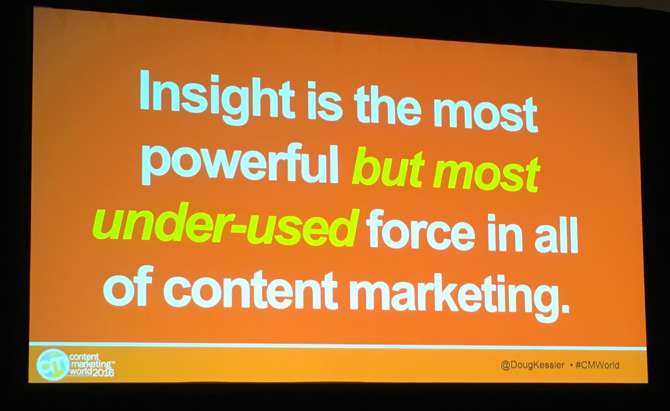
What is insight? Doug Kessler warned that there are some things that will pretend to be insight, but it's not really the case.
- Data is not insight until it's meaning is unpacked for an audience.
- Eye candy is not insight. (put data in an infographic) This isn't M-f*cking-TV
- Curation is not insight. Until you add some analysis.
How do you find insight and turn it into content?
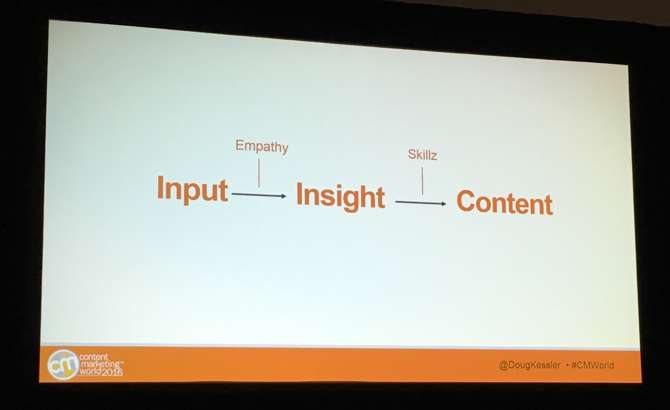
There's not a set formula, so this is the difficult part. But you have to start somewhere! For example, Doug shared,
Fact-> Observation -> Insight
- Fact: People feed their pets twice a day.
- Observation: They tend to feed them at breakfast and dinner time.
- Insight: People feel guilty about eating in front of their pets.
So now that you have this insight, you'll see pet food companies doing things like:
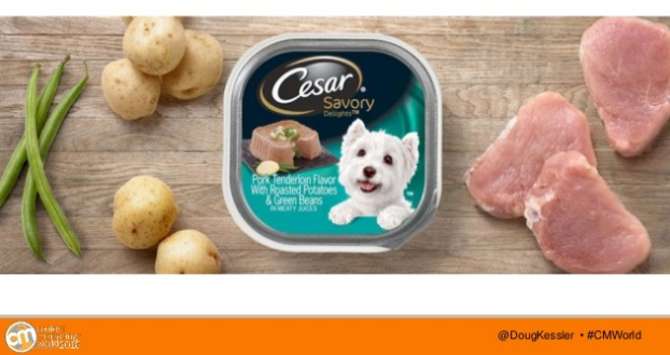
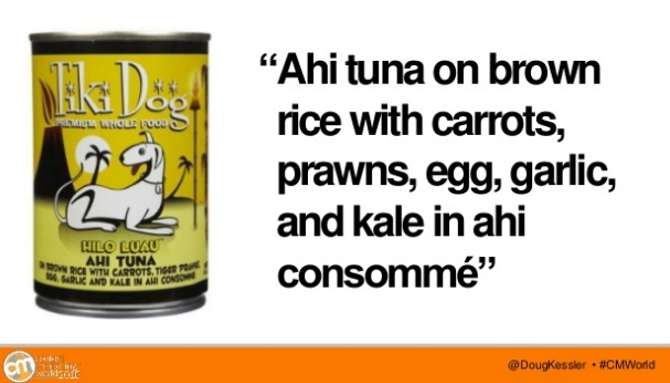
Or, the fact that only 2 percent of women think they are beautiful. Dove had insight into that one and created a HUGE global ad campaign based on "real beauty."
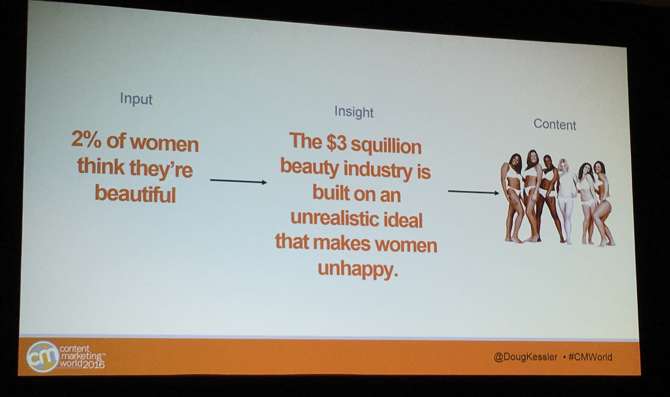
Why does insight matter?
Key Takeaway: Take a chance and spend the time to spot the insight on your next project.
4. Just like your retirement portfolio, you should diversify your content channels. The challenge is not being spread too thin. -Margaret Magnarelli
Margaret Magnarelli is the Managing Editor/ Senior Director, Marketing at Monster. She gave practical tips on how her team structures diverse content creation and promotion to positively impact key performance indicators (KPIs).
Don't focus on your home page: "front door" traffic is dying
"The New Your Times saw a 50 percent decline in homepage entries between 2012 and 2014...while side doors (email, paid social, organic search, referral, etc.) are multiplying."
What does this mean? Diversification is good!
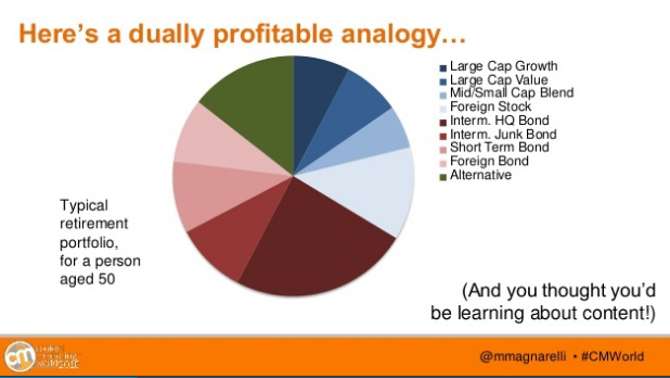
"Diversification of channels increases traffic and conversion potential while at the same time decreasing the risks of plummeting KPIs."
*The challenge is not being spread too thin.*
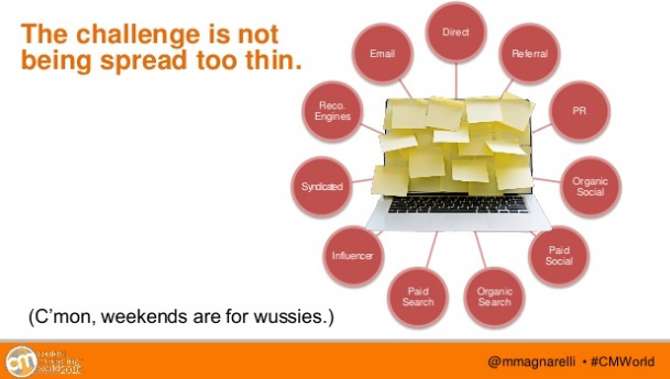
The Monster Content Portfolio
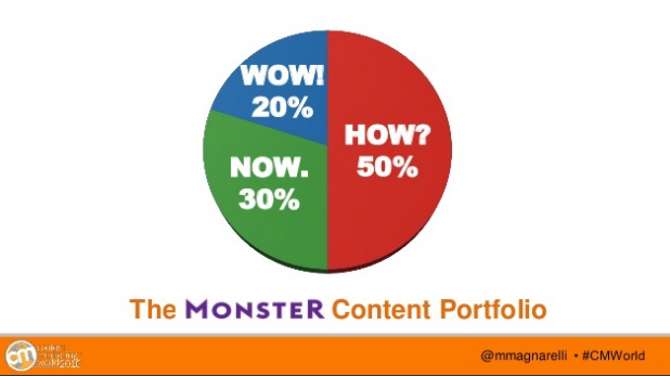
She outlines the different types as follows:
- "How?" is evergreen educational content that offers supreme utility, and establishes your brand as a thought leader.
- "Now." is news-, trend- or data-driven content that builds authority and integrity, while helping make your brand seem current.
- "Wow!" is content created for social sharing or engagement—e.g. infographics, quizzes, humorous lists, GIFs posts— for our own site or for specific social platforms.
An Example of Wow! Content
See, a resume can be fun!
What was the payoff?
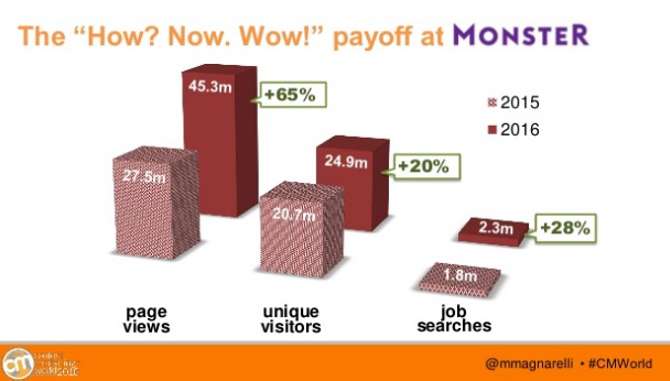
Key Takeaway: Work with your team to outline your content diversification and promotion strategy. Margaret shared a detailed organizational chart that shows how much coordination and planning is required to put a successful program in place.
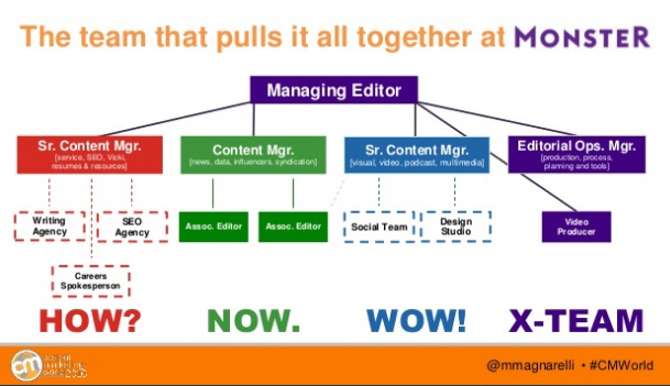
5. You have to be inspiring. What's your punchline? -Michael Jr
Comedian Michael Jr. started out by explaining how jokes work: most of the time you have a set-up, and then you have a punchline. But he went into more than jokes. He explained how his perspective on comedy changed.
The video explains it best, and to be honest, I got a little teary-eyed at the end.
Key Takeaway: You should probably just watch the video it's only 3 minutes.
If you want to hear more about his keynote, there is an entire article about his performance at Content Marketing World.
Like I said, smart people!
It's impossible to include them all. Hear from Ann Handley and Kristina Halvorson about Slow Content. Or check out other summaries on the CMW blog.
large billboard

